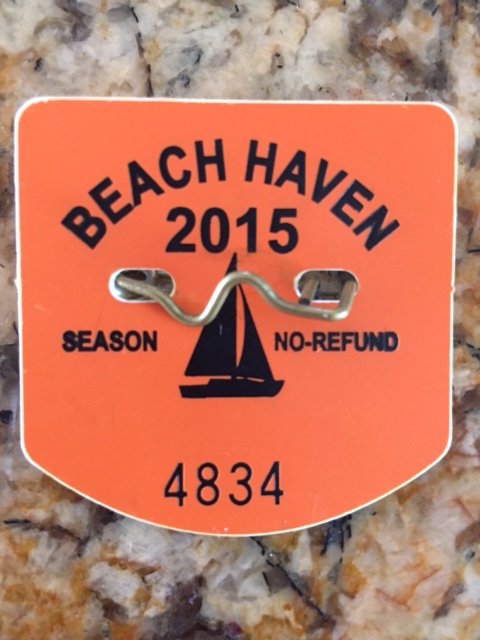
Published online today, December 10, 2015 and it will be in Sunday's paper. Thank you to the Asbury Park Press for their for publishing this and for their attention to this matter over the years.
Text below as well.
The Holidays are upon us, so let’s talk about beach fees! Or beach badges if you prefer. As reported in this paper and other news outlets, beach towns up and down the Jersey Shore had record-breaking beach badge sales this year. It can be attributed to 2015’s dry weekend weather, low gas prices, and a late Labor Day giving us an extra week of summer.
Fantastic. We love beaches; and apparently residents and tourists love them too. We are happy that many towns were able to put large amounts of money into rainy day funds as a result of these better than expected 2015 badge sales. To all of those towns here is our challenge – lower the price of your badges for 2016, or improve access to your beaches.
Towns are not supposed to “profit” from beach badge sales. They are only supposed to take in as much as it costs them to operate their beaches. So when the revenue is higher than expected, towns that are already very accessible and well lifeguarded (most towns) have two choices. They can find some new way to spend more money; some fancy new gadget or shiny new building, or they can lower the price of their badges next season. We understand the need for rainy day funds. But since those funds in many towns have been nicely filled, this is the time to see if towns can deliver the same amount of services for a lower-priced badge.
Some of the towns with record breaking years actually raised the price of their daily badges for 2015, some as high as $9. Nine dollars to walk on a beach with a lifeguard! Don’t think for a second that lowering this even one dollar will not make a big difference to a family who enjoys the beach. There are life and death safety implications here.
Every year people drown at the Jersey Shore, but never on a lifeguarded beach. It always happens after lifeguard hours; after beach fee hours. We can’t have lifeguards on every beach at every second of the day, but maybe we can get more people to use the beaches during lifeguard hours by lowering fees.
There are beach access implications too. The state has recently adopted rules that allow towns to determine the amount and type of access that suits them, as opposed to clear statewide standards. We disagree with this approach, partly because the reduced state scrutiny applies to beach fees as well. We see towns increasing fees to what they think the market will bear, instead of reducing them to the lowest level possible where they can still provide all the necessary services and safety needed to run a beach. The state does no enforcement and simply hides behind their vague language saying beach fees need to be “reasonable”.
Most towns in the area have more than adequate access and plenty of services. If such a town also had extraordinary revenue, we think they should lower their fees. But a few towns could stand to spend that extra money on improving access itself.
In the town of Deal, for example, their 2015 badge sales were up 61% over 2014 according to a November article in the Asbury Park Press. This is in a town where swimming is illegal on any beach outside of the Deal Casino and Conover Pavilion. What was Deal’s response at the end of the 2015 season? Did they announce plans for access path improvements so beach access is safer? Did they declare there would be more trash and recycling cans at beach entrances and on the beach to accommodate the increased use? Did they break with history and say they would put a lifeguard or two on maybe one extra beach? No, their response to the record-breaking revenue of 2015 was to introduce an ordinance that would have created permit parking only on several streets near the beach; a slap in the face to public access. Thankfully, access advocates and concerned citizens beat that proposal back, and they continue to monitor Deal.
This is a time where all beach towns, newly flush with cash, can show their true colors with respect to public access. Lower your beach fees if you are fully accessible or improve your access if it lacks in any way. What it the absolute worst that could happen? Maybe more people will come to your beach.
John Weber is the Mid Atlantic Regional Manager for the Surfrider Foundation
